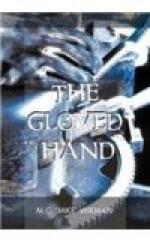“Yes,” I agreed with conviction, “I do;” and I cast my mind rapidly over the affairs of the office. With the Minturn case ended, there was really no reason why I should not take a few days off.
“You’ll come, then?” said Godfrey, who had been following my thoughts. “Don’t be afraid,” he added, seeing that I still hesitated. “You won’t find it dull.”
I looked at him, for he was smiling slightly and his eyes were very bright.
“Won’t I?”
“No,” he said, “for I’ve discovered certain phenomena in the neighbourhood which I think will interest you.”
When Godfrey spoke in that tone, he could mean only one thing, and my last vestige of hesitation vanished.
“All right,” I said; “I’ll come.”
“Good. I’ll call for you at the Marathon about ten-thirty. That’s the earliest I can get away,” and in another moment he was gone.
So was my fatigue, and I turned with a zest to my letters and to the arrangements necessary for a three days’ absence. Then I went up to my rooms, put a few things into a suit-case, got into fresh clothes, mounted to the Astor roof-garden for dinner, and a little after ten was back again at the Marathon. I had Higgins bring my luggage down, and sat down in the entrance-porch to wait for Godfrey.
Just across the street gleamed the lights of the police-station where he and I had had more than one adventure. For Godfrey was the principal police reporter of the Record; it was to him that journal owed those brilliant and glowing columns in which the latest mystery was described and dissected in a way which was a joy alike to the intellect and to the artistic instinct. For the editorial policy of the Record, for its attitude toward politics, Wall Street, the trusts, “society,” I had only aversion and disgust; but whenever the town was shaken with a great criminal mystery, I never missed an issue.
Godfrey and I had been thrown together first in the Holladay case, and that was the beginning of a friendship which had strengthened with the years. Then came his brilliant work in solving the Marathon mystery, in which I had also become involved. I had appealed to him for help in connection with that affair at Elizabeth; and he had cleared up the remarkable circumstances surrounding the death of my friend, Philip Vantine, in the affair of the Boule cabinet. So I had come to turn to him instinctively whenever I found myself confronting one of those intricate problems which every lawyer has sometimes to untangle.
Reciprocally, Godfrey sometimes sought my assistance; but, of course, it was only with a very few of his cases that I had any personal connection. The others I had to be content to follow, as the general public did, in the columns of the Record, certain that it would be the first to reach the goal. Godfrey had a peculiar advantage over the other police reporters in that he had himself, years before, been a member of the detective force, and had very carefully fostered and extended the friendships made at that time. He was looked on rather as an insider, and he was always scrupulously careful to give the members of the force every bit of credit they deserved—sometimes considerably more than they deserved.




